Blog
The Zen Of Kyoto
It was only six months ago that I wrote a blog – Florence – “I won’t have time, I won’t have time”. The quote is from a song by Michel Fugain and it dealt with how one can spend a very long time in Florence and still have more things to see. I am now writing from Kyoto and after having walked many miles yesterday and today trying to catch the ‘essence’ of this city, I can only think of Fugain’s, “even in a hundred years, I will not have the time to do it all.”
My Rough Guide to Japan has this to say about Kyoto – “The capital of Japan for more than thousand years, the city is endowed with an almost overwhelming legacy of ancient Buddhist temples, majestic palaces and gardens of every size and description, not to mention some of the country’s most important works of art, its richest culture and most refined cuisine.”
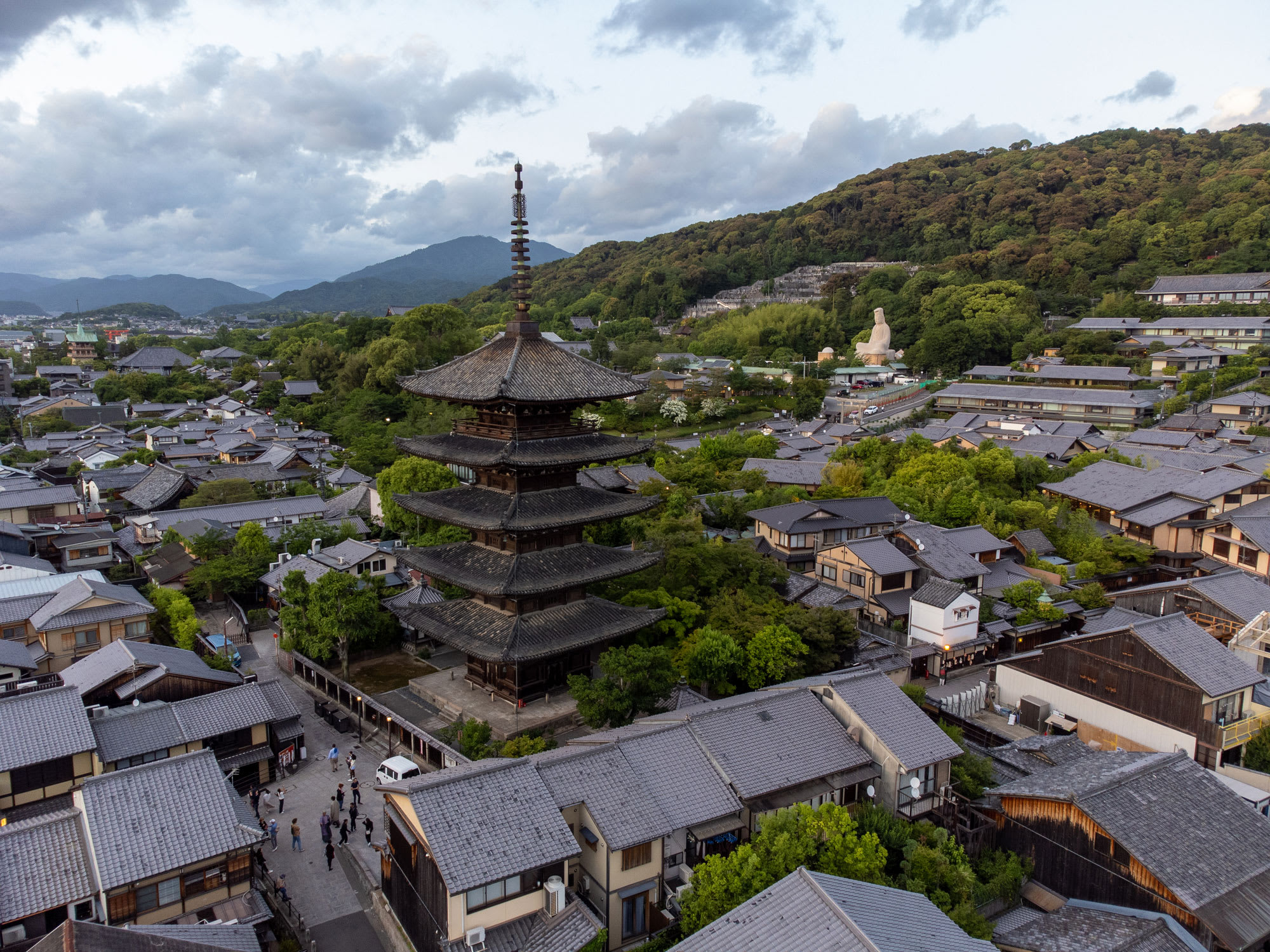
A few decades ago, I attended a retreat given by an exiled Buddhist Vietnamese monk and Zen master, Thich Naht Hanh, who at that time was teaching walking meditations, mindfulness and compassion. Today, as I walked and visited some wonderful quiet temples with exquisite Zen gardens, I could sit silently, enjoy the surroundings and meditate – breathe in, breathe out. It felt really good. I was exalted.
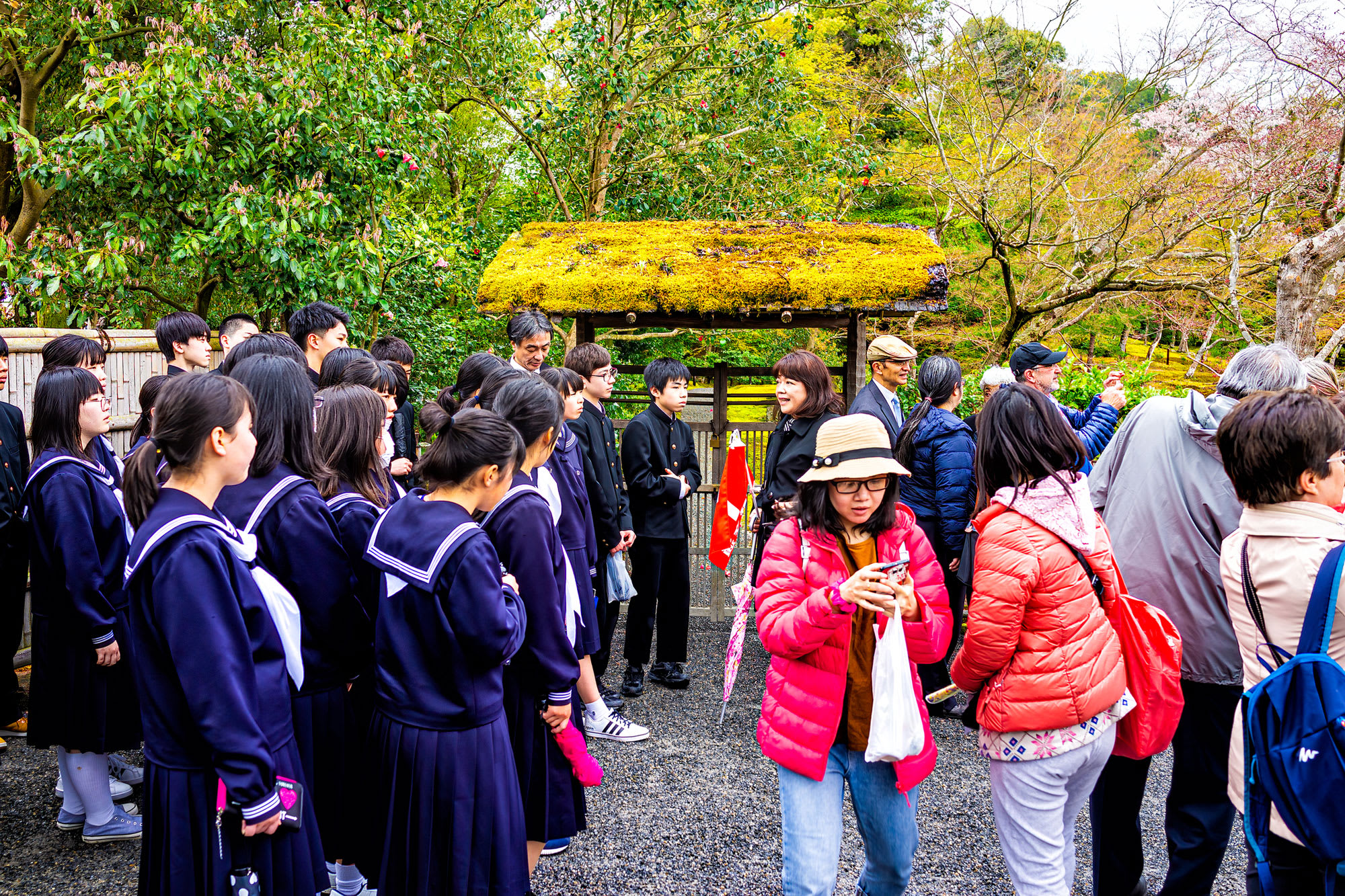
At other points when I happened to come across masses of people taking selfies at renown temples like Golden Pavilion Kinkakuji, the Kiyomizu-dera, or the photogenic Fushimi – Inari Taisha, I had to practice mindfulness to focus on what I wanted to see which, considering where I was, shouldn’t have been a problem. But as I much as I tried being mindful, I also had to practice compassion for all of those people who just needed another angle of being photographed in front, behind or to the side of the temple and to get just the right pose. After all, they too needed to validate why they were here.
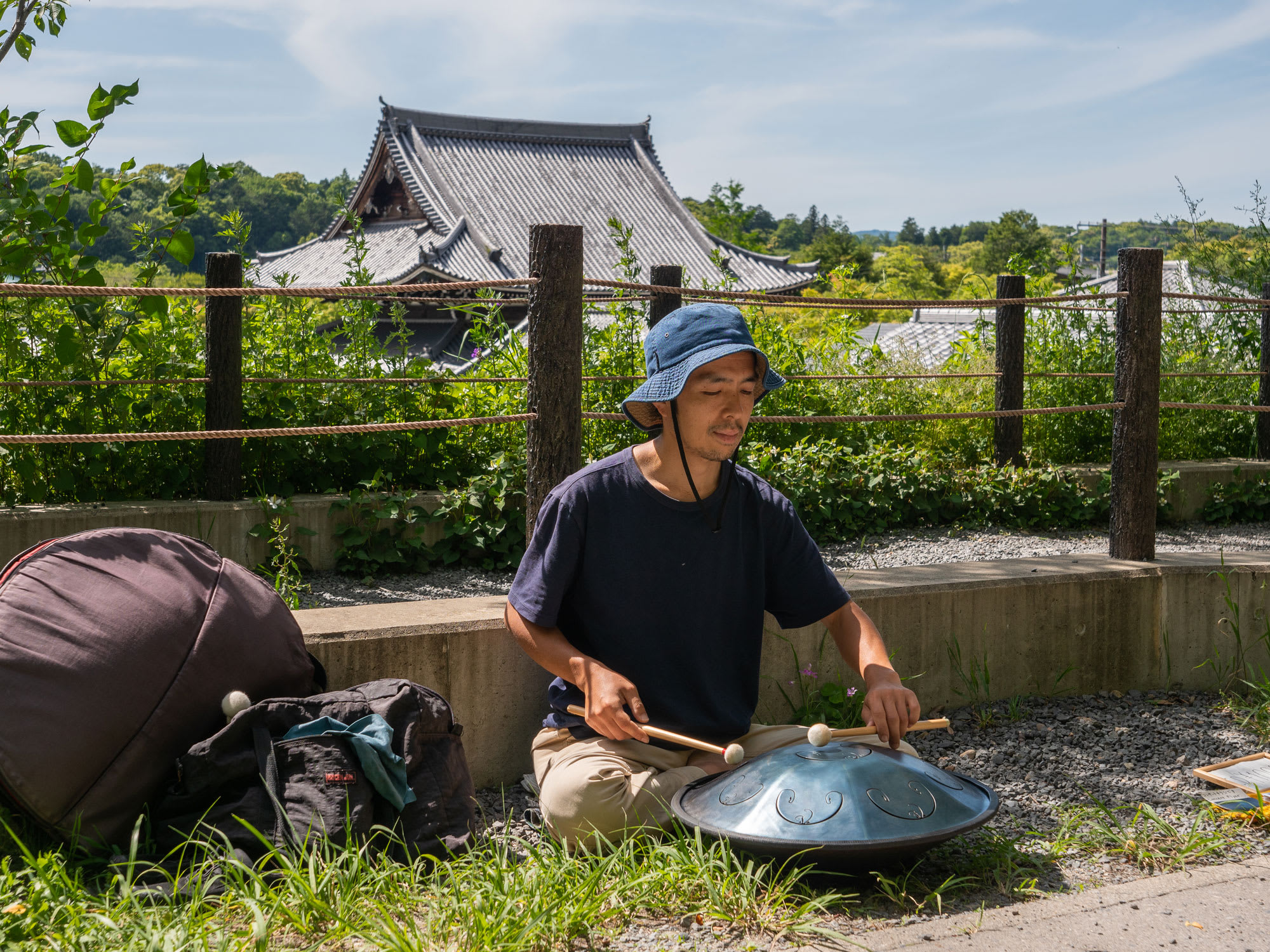
To be frank I wasn’t the best of Thich Naht Hanh’s students, as much as I tried, which wasn’t very hard. We, TDA riders, are a spoiled bunch. We mostly cycle and visit places where there are no tourists, so when we arrive in a city like Kyoto, it overwhelms us. We are simply not used to crowds and having to compete with others for the best view.
When my view was blocked, I thought of the celebrated Haiku master, Bashu, who left Kyoto to wonder around and wrote, “In Kyoto, hearing the cuckoo, I long for Kyoto.” In case you are wondering what Haiku is, I found a website which gave a definition which I like – “Haiku is a form of poetry that celebrates the small lifeforms that fill nature, such as flowers, birds, and insects. With cherry blossoms in spring, fresh green leaves in summer, bright foliage in autumn, and light rains in winter, seasonal natural beauty and traditional events in Kyoto have always attracted many composers of haiku.”
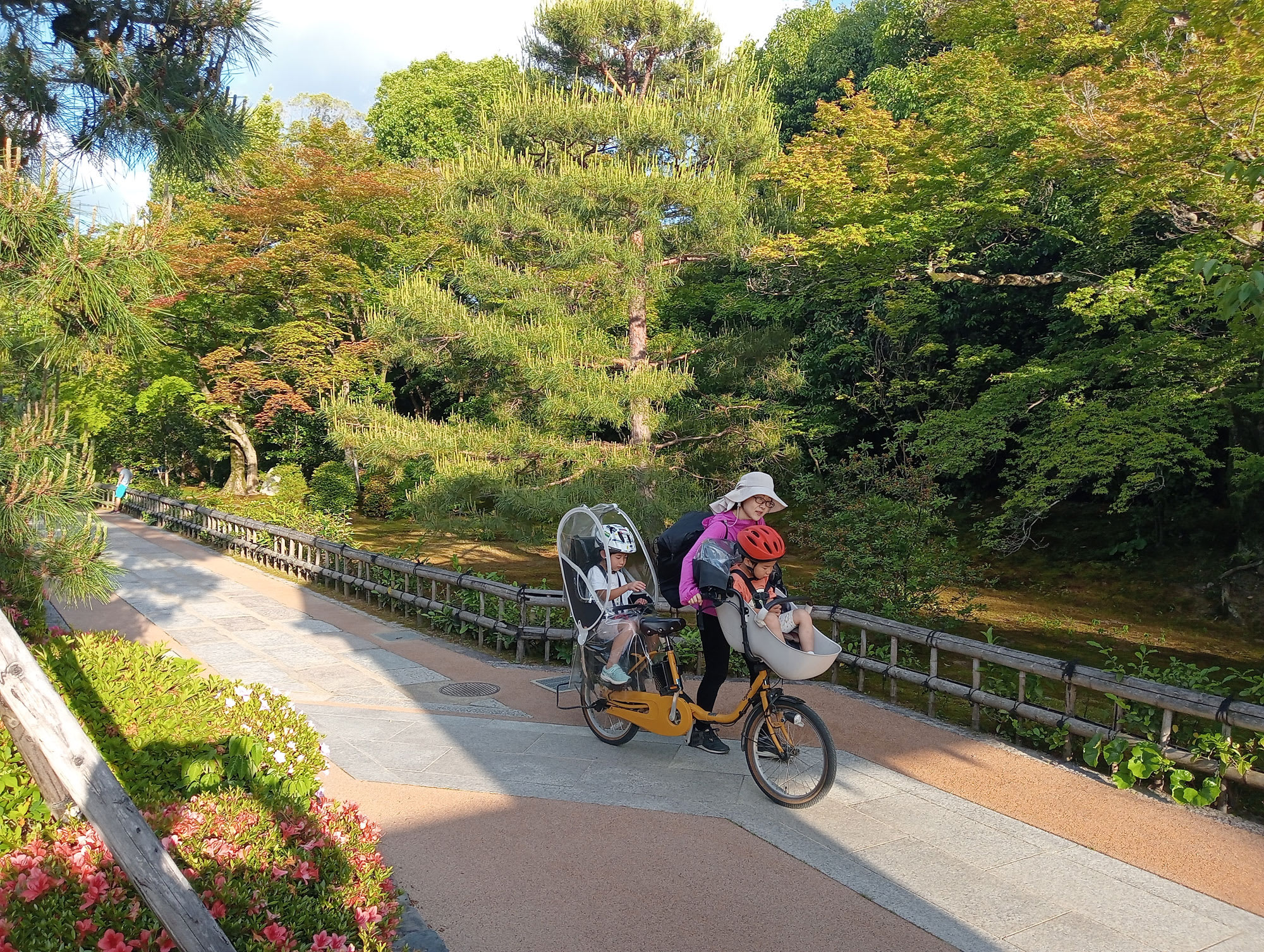
And it was the small things that gave me the most pleasure in Kyoto. It was seeing seven or eight year old kids going home from school without any adult supervision. In Toronto, where I live, the parents allowing their children to walk home on their own would be at risk of having their children taken away for irresponsible parenting. It was watching a mother picking up two children from kindergarten behind one of the quiet temples I visited, putting the smaller on the front seat of her bike and the older on the back seat behind her and then pedalling off. In Toronto, where car culture rules, this would be considered foolish behaviour at the best of times.
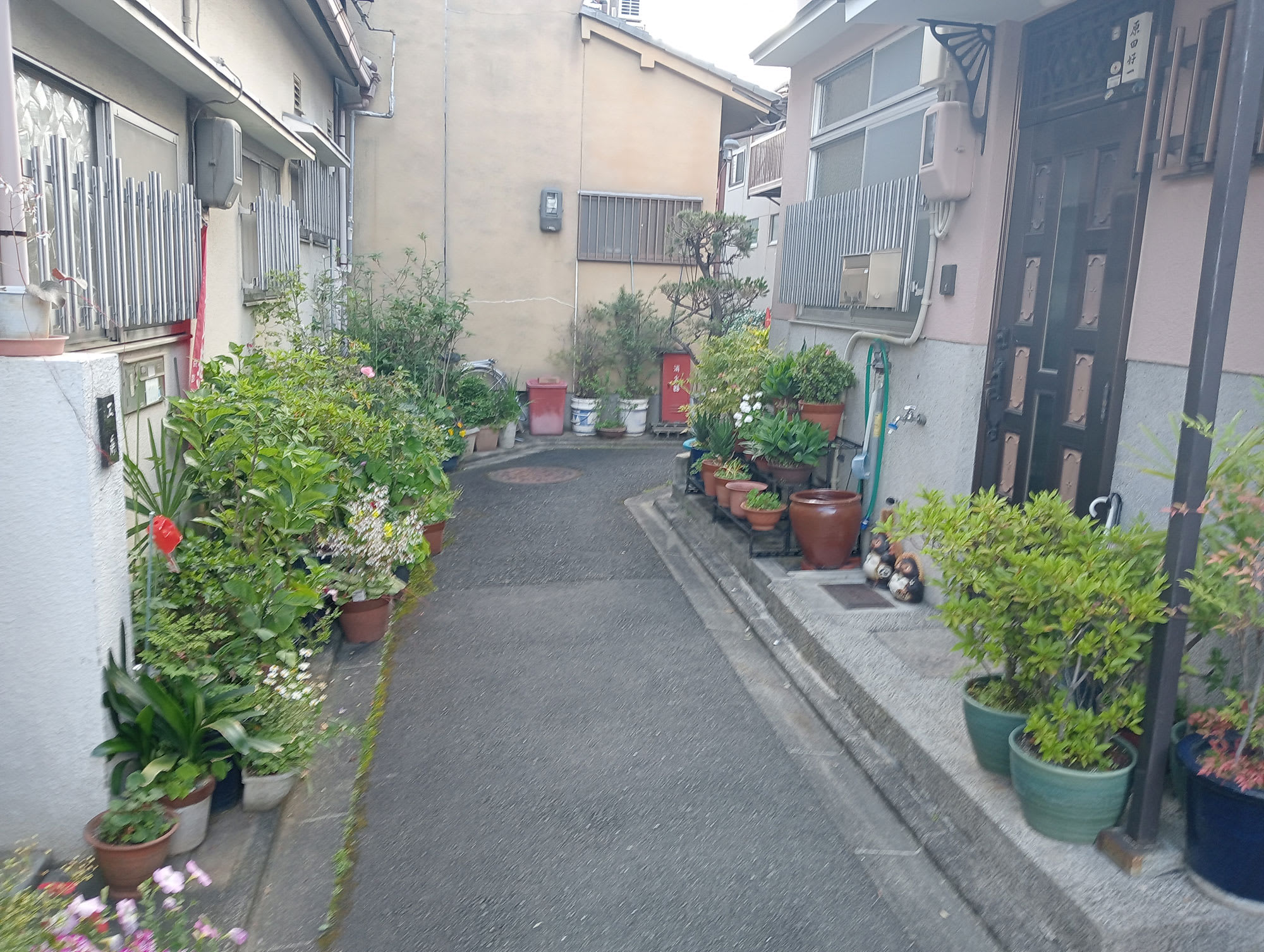
It was catching sight of the flowers and carefully manicured trees and bushes in front and behind people’s houses as I wandered the narrow streets, where even a small Japanese car would have a hard time getting through. It was watching an old man moving tiny little pebbles or simply cleaning them away from in front of his house that made me smile. It is with these images that I will remember this magical city of temples, shrines, Zen gardens, little shops and wonderful people.
Now, if only I could write a Haiku about it.
RELATED
TOUR

Journey to the East
While Korea and Japan are close neighbors, their lands and cultures are completely their own, and cycling across these countries one after the other...
 REGISTER NOW
REGISTER NOW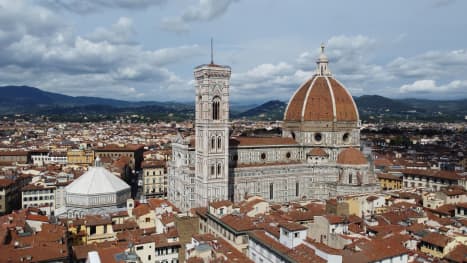




Leave a Comment for "The Zen Of Kyoto"